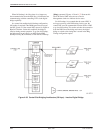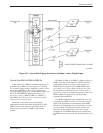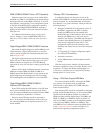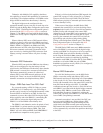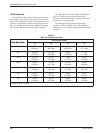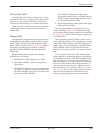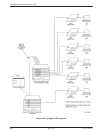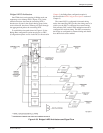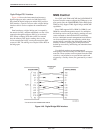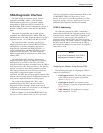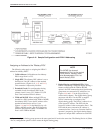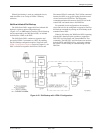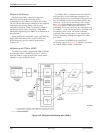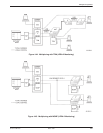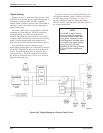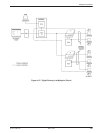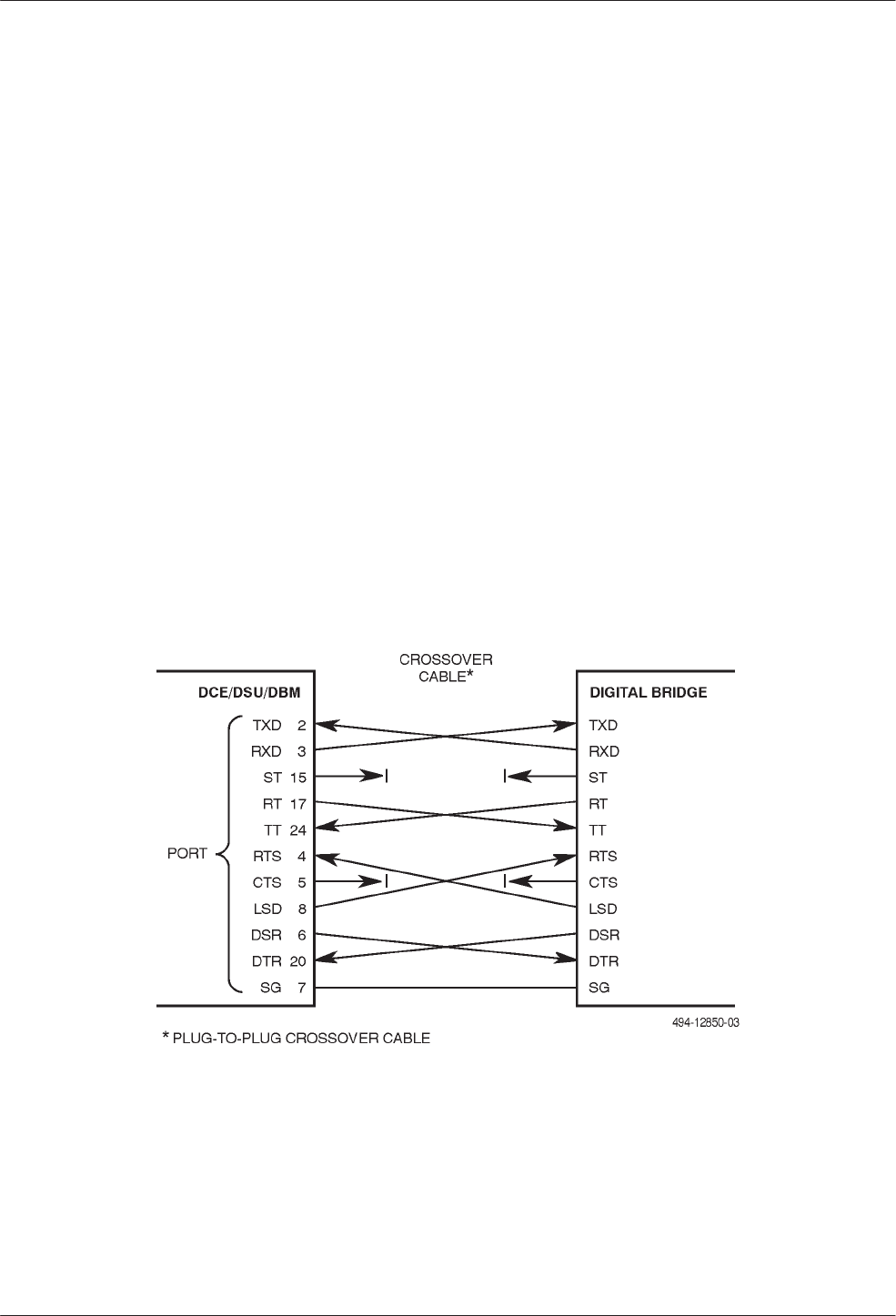
COMSPHERE 3600 Series Data Service Units
4-52 March 1999 3610-A2-GB41-60
Digital Bridge/DSU Interface
Figure 4-40 shows the interconnections between a
digital bridge port and a central-site 3600 Series DSU.
Since both the digital bridge port and the DSU provide a
DCE interface, a special crossover cable or digital bridge
interface cable is used to complete the communication
path.
Data broadcast to a digital bridge port is accepted by
the central-site DSU, and then transmitted over the 4-wire
connection through the tributary DSU to its associated
DTE. When a tributary DTE turns on RTS to transmit
data, the tributary DSU begins sending data over the
4-wire transmission facility, causing the central-site DSU
to turn on LSD. The cabling cross-couples LSD to RTS on
the bridge port.
NMS Control
For a DSU with TDM or MCMP, the DATAPHONE II
System Controller cannot configure the TDM ports or set
port speeds. Only the COMSPHERE 6700 or 6800 Series
NMS can fully support TDM, digital bridge, and MCMP
capabilities.
Since NMS supports DSUs, DBM-Vs, DBM-Ss, and
DBM-Ds, network management control of a multipoint
dial backup session can be provided by sending tests and
status commands to the individual DSU and backup
devices. Additional network management-based features
can be accomplished, such as determining which drops
require backup, controlling the dial backup setup for the
tributary locations, verifying that all drops have been
backed up successfully, and filtering out redundant alarm
information.
User-defined routines can automate network
management-controlled backup for 3600 Series multipoint
networks. These routines can be requested from the NMS
console or can be linked to an event-driven routine and
triggered by a Facility Alarm (FA) generated by a control
DSU.
Figure 4-40. Digital Bridge/DSU Interface



